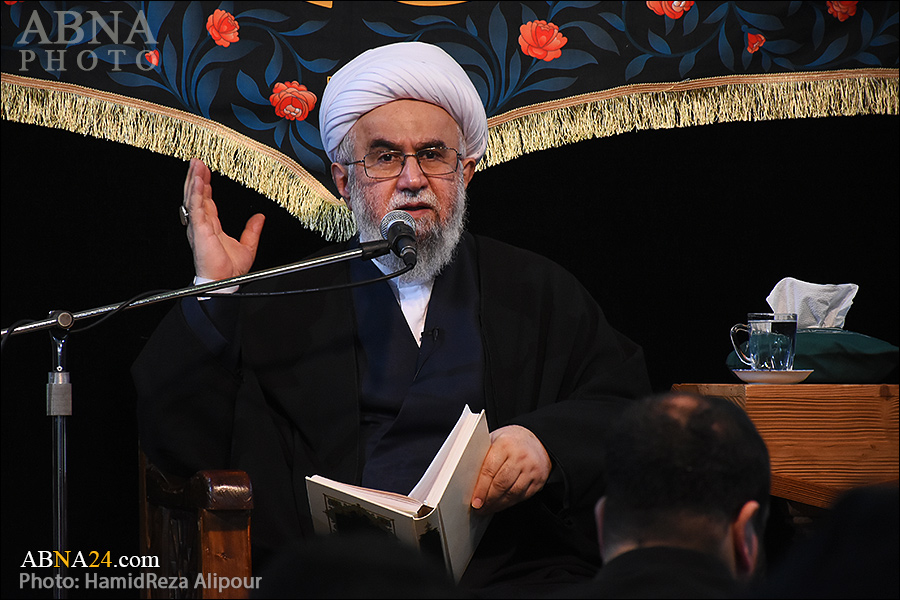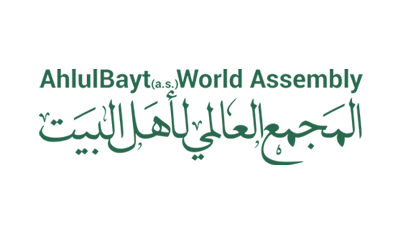Islam Grants Women the Right to Leadership, Education, Upbringing, Decision-Making: Ayatollah Ramazani
The representative of Gilan in the Assembly of Leadership Experts, speaking about the status of women in the Quran, stated that there are approximately 300 Quranic verses about women. He emphasized that Islam grants women the right to leadership, upbringing, education, and decision-making.
ABWA Official Website – On Monday, December 2, 2024, during a mourning ceremony commemorating the martyrdom anniversary of Lady Fatimah Zahra (a.s.) at the Haj Samad Khan Mosque in Rasht, Ayatollah Reza Ramazani highlighted that justice has been the ultimate goal of all divine prophets. “A system based on justice must be established so that society can experience justice in every dimension,” he remarked.

“The spirituality emphasized in the Quran and Hadiths is rooted in religion. Spirituality is not a human invention; its pinnacle must be centered on God. Anything else is but a mirage,” he added.
Ayatollah Ramazani further noted, “Humanity’s greatest pursuit is to achieve security and stability. Until it attains security, it will not find peace.”
There are approximately 300 Quranic verses about women
Referring to the Quran’s focus on women, Ayatollah Ramazani stated, “Approximately 300 verses in the Quran discuss women and issues related to them. There is a chapter (Surah) named after women, as well as chapters named after prominent women in history, such as Surah Maryam.”
He pointed out the extremes in perspectives toward women throughout history, stating, “Unfortunately, in various historical periods, women have faced neglect and injustice. Yet, the Almighty God has decreed equal rewards for both men and women, making no distinction between them.”
“Islam’s view of women, as well as the Prophet Muhammad’s (p.b.u.h) treatment of women, introduces a new discourse aligned with the divine order of creation,” emphasized the Secretary-General of the AhlulBayt (a.s.) World Assembly.
Women in the Quran as Agents of Change and Activism
Addressing extremist perspectives from civilizations like those of ancient China, India, and pre-Islamic Arabia, Ayatollah Ramazani remarked, “For instance, women in China were denied inheritance.”
He underscored the Quranic perspective on women, stating, “A role model like Lady Fatimah (a.s.) provides us with a profound understanding of the status of women and clarifies our duties toward them.”
“From the Qur’anic perspective, women can align themselves with a monotheistic, justice-oriented system and become agents of change, active contributors, and transformative forces,” he added.
Martyrs Soleimani and Nasrallah Were Inspired by Lady Fatimah (a.s.)
Ayatollah Ramazani highlighted, “The concept of ‘Kawthar’ in the Quran, exemplified by the legacy of Lady Fatimah (a.s.), continues to have a profound impact today. Figures like Martyr Soleimani, Sayed Hassan Nasrallah, and Sayed Hashem Safieddine are fruits of such ideological framework and the teachings of Lady Fatimah (a.s.).”
Stressing the importance of understanding the lifestyle of Lady Fatimah (a.s.), he lamented that many human schools of thought throughout history have failed to regard women as beings with dignity.
The Secretary-General of the AhlulBayt (a.s.) World Assembly explained, “The Quran portrays humanity as beings with free will. However, during the Ignorance Era (Jahiliyyah), women were denied everything and were treated merely as tools.”
The Holy Prophet (p.b.u.h) Revived Women’s Rights
Ayatollah Ramazani stated, “The Prophet Muhammad (p.b.u.h) revived the rights and status of women. During the Ignorance Era (Jahiliyyah), people would become enraged and distressed upon the birth of daughters, burying them alive.”
“In history, there were instances where women were excluded from motherhood’s role in raising children and even denied the right to interact socially. In contrast, Islam granted women the right to leadership, education, upbringing, and decision-making,” he added.
Ayatollah Ramazani remarked, “In certain historical periods, women were denied any form of economic ownership or managerial power. Today, however, we see women occupying ministerial positions.”
The Quran Views Women’s Virtue in Modesty, Purity, and Chastity
“The Quran regards women’s virtue in their modesty, purity, and chastity. It views immodesty and impiety as deviations from the path of perfection. Our holy book, Quran, contains numerous verses addressing this issue,” he emphasized.
Ayatollah Ramazani expressed, “In contemporary family life, unfortunately, even minor issues lead to disputes. However, in the life of Imam Ali (a.s.) and Lady Fatimah (a.s.), there was not a single instance of discord because an ideological framework prevented it.”
The Secretary-General of the AhlulBayt (a.s.) World Assembly concluded, “Islam elevated the status of women. Women, through raising generations at home and contributing outside the home, can lead society toward security and well-being.”
Lastly, he reflected on the relationship between Lady Fatimah (a.s.) and the Prophet Muhammad (p.b.u.h), asserting, “Lady Fatimah (a.s.) had a unique position for the Prophet (p.b.u.h), earning her the title of ‘The Mother of Her Father’.”
**************
End/ 345
The representative of Gilan in the Assembly of Leadership Experts, speaking about the status of women in the Quran, stated that there are approximately 300 Quranic verses about women. He emphasized that Islam grants women the right to leadership, upbringing, education, and decision-making.
ABWA Official Website – On Monday, December 2, 2024, during a mourning ceremony commemorating the martyrdom anniversary of Lady Fatimah Zahra (a.s.) at the Haj Samad Khan Mosque in Rasht, Ayatollah Reza Ramazani highlighted that justice has been the ultimate goal of all divine prophets. “A system based on justice must be established so that society can experience justice in every dimension,” he remarked.

“The spirituality emphasized in the Quran and Hadiths is rooted in religion. Spirituality is not a human invention; its pinnacle must be centered on God. Anything else is but a mirage,” he added.
Ayatollah Ramazani further noted, “Humanity’s greatest pursuit is to achieve security and stability. Until it attains security, it will not find peace.”
There are approximately 300 Quranic verses about women
Referring to the Quran’s focus on women, Ayatollah Ramazani stated, “Approximately 300 verses in the Quran discuss women and issues related to them. There is a chapter (Surah) named after women, as well as chapters named after prominent women in history, such as Surah Maryam.”
He pointed out the extremes in perspectives toward women throughout history, stating, “Unfortunately, in various historical periods, women have faced neglect and injustice. Yet, the Almighty God has decreed equal rewards for both men and women, making no distinction between them.”
“Islam’s view of women, as well as the Prophet Muhammad’s (p.b.u.h) treatment of women, introduces a new discourse aligned with the divine order of creation,” emphasized the Secretary-General of the AhlulBayt (a.s.) World Assembly.
Women in the Quran as Agents of Change and Activism
Addressing extremist perspectives from civilizations like those of ancient China, India, and pre-Islamic Arabia, Ayatollah Ramazani remarked, “For instance, women in China were denied inheritance.”
He underscored the Quranic perspective on women, stating, “A role model like Lady Fatimah (a.s.) provides us with a profound understanding of the status of women and clarifies our duties toward them.”
“From the Qur’anic perspective, women can align themselves with a monotheistic, justice-oriented system and become agents of change, active contributors, and transformative forces,” he added.
Martyrs Soleimani and Nasrallah Were Inspired by Lady Fatimah (a.s.)
Ayatollah Ramazani highlighted, “The concept of ‘Kawthar’ in the Quran, exemplified by the legacy of Lady Fatimah (a.s.), continues to have a profound impact today. Figures like Martyr Soleimani, Sayed Hassan Nasrallah, and Sayed Hashem Safieddine are fruits of such ideological framework and the teachings of Lady Fatimah (a.s.).”
Stressing the importance of understanding the lifestyle of Lady Fatimah (a.s.), he lamented that many human schools of thought throughout history have failed to regard women as beings with dignity.
The Secretary-General of the AhlulBayt (a.s.) World Assembly explained, “The Quran portrays humanity as beings with free will. However, during the Ignorance Era (Jahiliyyah), women were denied everything and were treated merely as tools.”
The Holy Prophet (p.b.u.h) Revived Women’s Rights
Ayatollah Ramazani stated, “The Prophet Muhammad (p.b.u.h) revived the rights and status of women. During the Ignorance Era (Jahiliyyah), people would become enraged and distressed upon the birth of daughters, burying them alive.”
“In history, there were instances where women were excluded from motherhood’s role in raising children and even denied the right to interact socially. In contrast, Islam granted women the right to leadership, education, upbringing, and decision-making,” he added.
Ayatollah Ramazani remarked, “In certain historical periods, women were denied any form of economic ownership or managerial power. Today, however, we see women occupying ministerial positions.”
The Quran Views Women’s Virtue in Modesty, Purity, and Chastity
“The Quran regards women’s virtue in their modesty, purity, and chastity. It views immodesty and impiety as deviations from the path of perfection. Our holy book, Quran, contains numerous verses addressing this issue,” he emphasized.
Ayatollah Ramazani expressed, “In contemporary family life, unfortunately, even minor issues lead to disputes. However, in the life of Imam Ali (a.s.) and Lady Fatimah (a.s.), there was not a single instance of discord because an ideological framework prevented it.”
The Secretary-General of the AhlulBayt (a.s.) World Assembly concluded, “Islam elevated the status of women. Women, through raising generations at home and contributing outside the home, can lead society toward security and well-being.”
Lastly, he reflected on the relationship between Lady Fatimah (a.s.) and the Prophet Muhammad (p.b.u.h), asserting, “Lady Fatimah (a.s.) had a unique position for the Prophet (p.b.u.h), earning her the title of ‘The Mother of Her Father’.”
**************
End/ 345





